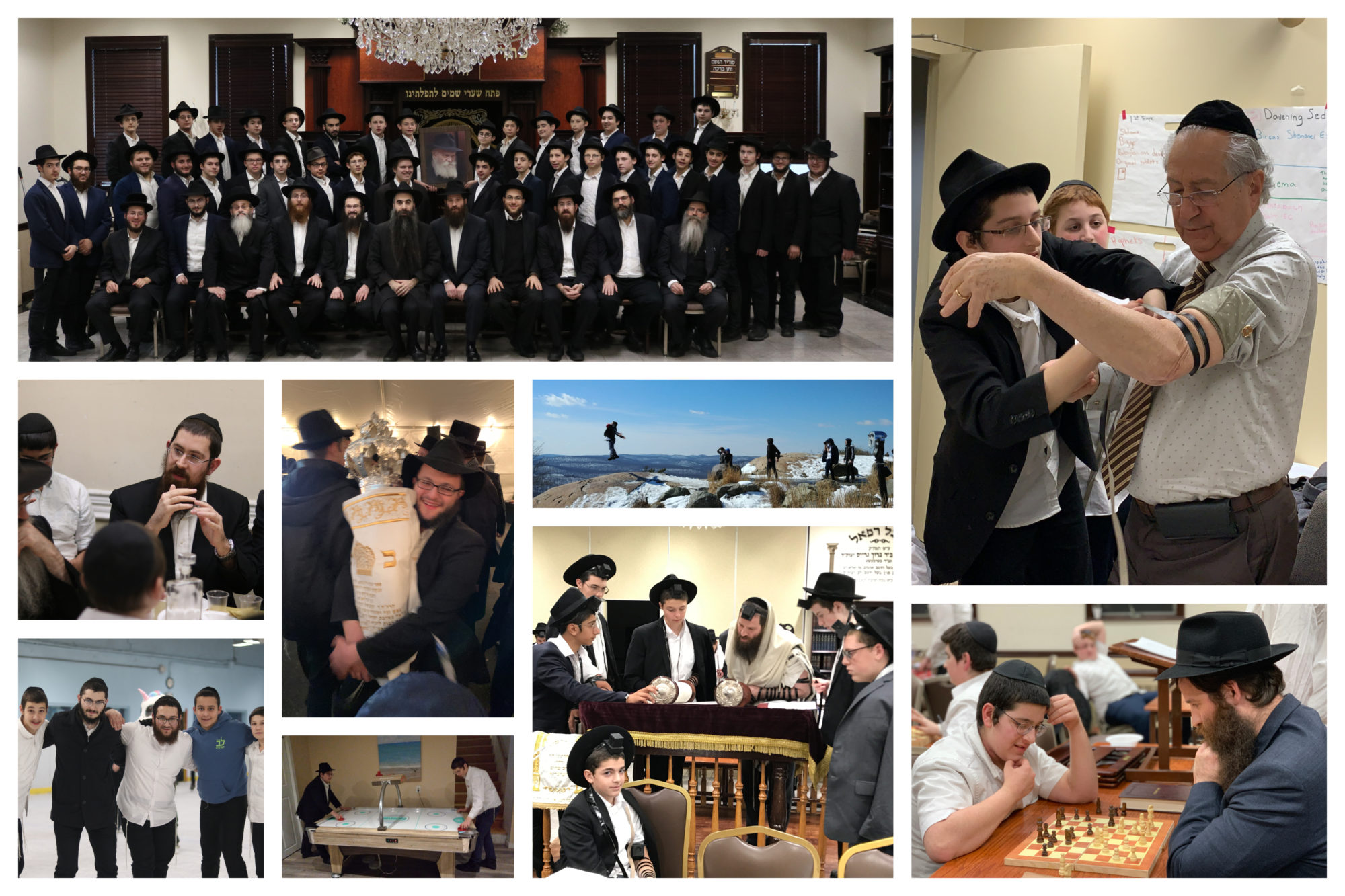
UPDATE: Due to the high volume of applications and inquiries being submitted, in order to streamline the process and get back to you efficiently, if you have any questions, want to speak with the Hanhola to get more information, or plan a visit to the Yeshiva, please first complete Step 1 on the application page. Once completed we will contact you within a day or two, IY”H
Click here for a glimpse into Yeshiva life
For Our Talmidim
Lev Tmimim Lubavitch is like no other Yeshiva. Our mission is to Create Leaders one Bochur at a time. A leader does not mean a boss, a manager, a commander, or someone in charge (although a leader can be any of those). Rather, at MLTL leadership comes from communicating to each Bochur his worth and potential so clearly, that he is inspired to see it in himself. And that Leadership attitude is brought out in each Bochur regarding everyone else. In other words, he is a leader when he helps his peers see the greatness in themselves.
This goal is achieved through the Lev Tmimim philosophy which is based on the understanding that every child, indeed, every person, is good. Our children, just like every one of us, want and need to feel loved for the intrinsic good of who they are, not for their achievements. This is the meaning of Unconditional Love. (Scroll down to ‘Emotional Wellbeing’ to read more about this, and how we achieve this).
The emotional wellbeing and happiness of a child is the foundation for his success. In a safe and nurturing environment of Yiras Shomayim and Chassidishkeit a Bochur can grow to love learning, challenge himself to go beyond his current level, ot of his comfort zone, and excel.
MLTL maintains high standards of academic excellence and nurtures Talmidim in an environment infused with Hiskashrus to the Rebbe. We encourage curiosity, critical thinking, personal responsibility and self respect, as well as mutual responsibility and respect for other Talmidim. In such a way, we strive to foster a strong sense of self esteem as they mature during these critical years.
Read more about our mission and philosophy here
For Parents
We believe that communication with parents is of utmost importance and take pride in our responsiveness to parents’ concerns and involvement of parents as much as possible. We strongly encourage parents to be in regular contact with their son, and stress to our Talmidim the need to involve parents in their lives as much as possible while away from home.
For Our Staff
We believe that the Yeshiva experience benefits the staff as much as it does the Bochurim.
היינו דאמר רבי הרבה תורה למדתי מרבותי ומחבירי יותר מהם ומתלמידי יותר מכולן
We provide our staff with clear guidelines, expectations, and procedures. Our staff attend regular ongoing professional training and are encouraged to increase in their own learning. Our goal is for our staff members to grow each year together with their Talmidim and go מחיל אל חיל.
Being involved in Chinuch adds to one’s knowledge and experience, such that it increases one’s ability to be a positive influence on others… (Hisvaaduyos, 5749 pg. 378)
Click here to hear how parents describe their experience in their own words
Or Read More Below
Personal Success
While raising Talmidim who are great in learning Nigle and Chassidus – the primary mission should be raising בעלי מסירות נפש for Ahavas Hashem, Ahavas HaTorah, and Ahavas Yisroel, and דוקא bringing to concrete actions.
(Igros Kodesh Vol. 18, pg. 168)
Read more…
Emotional Wellbeing
Chinuch must come through love and connection, as we can tangibly see that education through revealed love is more effective than education through fear and awe.
(Sefer Hasichos 5750 pg. 194)
Read more…
High Level Academics
It is not sufficient to learn a matter with the student, and assume that Hashem will help that the student will make the effort on his own. Rather one must make a special effort to learn with the student until he can understand it in his own terms…
(Hisvaduyos, 5749 pg. 409)
Read more…
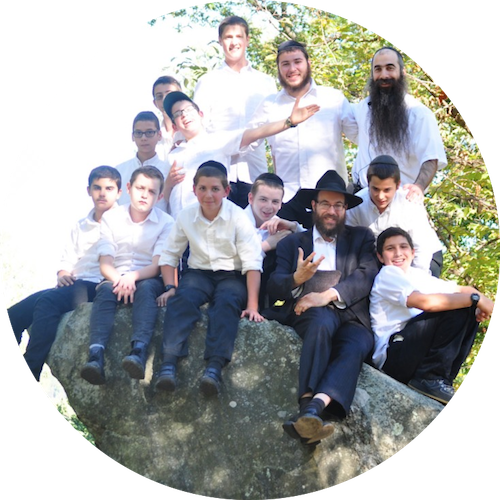
Educating the Complete Child
By creating an environment which is safe and nurturing, Talmidim can be encouraged to go out of their comfort zones and find new strengths inside of themselves. A Mechanech must be in tune with the child and know how to turn his challenges into strengths, until he himself learns to see his own virtues and desires to grow and challenge himself in all areas of his Avodas Hashem. Read more…
Keys to Hatzlocha

Communication
Parents are updated weekly on Yeshiva life, special events, important announcements and schedule changes. Hanhola are always available and responsive to parents’ concerns. We believe that only with close collaboration can we meet the full needs of the Talmid.

Shemiras Hasedarim, Responsibility and Personal Conduct
The Baal Shem Tov was systematic and orderly. The Maggid, his successor, insisted on order. And my great-grandfather – the Alter Rebbe – taught chassidim to be orderly.
(Hayom Yom, 7 Tammuz)

Curriculum
MLTL provides a traditional curriculum of Nigleh and Chassidus, while not losing focus of the goal of Talmidim graduating with a broad knowledge of Yedios Klaliyos, basic learning skills, and desire to learn more.
Please scroll below for details on the Limudei Kodesh curriculum, as well as info on the general studies curriculum.
Registration now open for שנת הלימודים ה'תשפ''א
Application is open to Bochurim entering Mechina (8th gr) and Shiur א׳ only. Shiur ב׳ and ג׳ applications will only be considered in special circumstances. (Please contact the Hanhola before proceeding).
Space is very limited. With a focus on each Bochur, we are very selective to ensure that our Talmidim will achieve the maximum benefit from our Yeshiva, and parents can be assured that their son will be in a wholesome environment free from any unwanted influences.
Or Read More Below
Curriculum and Academics
Choose between Kodesh only track, or afternoon
Limudei Chol program with goal of achieving a high school diploma
See below for information about our:
לימודי קודש
General Studies – לימודי חול
Extra Curricular

׳׳די תלמידים זאלן זיין פרומע ערליכע אידן, ווארימע אידן, חסידישע אידן׳׳
At Mesivta Lev Tmimim the curriculum is built under the direct guidance of veteran Mechanchim and Mashpi’im with a goal of ensuring strict adherence to the Rebbe’s goals of Mesivta Chinuch. Specifically, the Rebbe has made it clear on numerous occasions that the goal of the Yeshiva nowadays is different than it was in previous generations. As such the the curriculum should be designed such that the goals of this generation”s Yeshiva Chinuch should be achieved. Read more…
’לימודי חול ’על טהרת הקודש
Children should be taught to appreciate that everything is connected with the Torah. When they perform an experiment in a science lab, they should know that it is G-d’s creative power that is causing the chemical reactions they observe… If a person thinks of secular wisdom as being unrelated to the Torah, he does not understand the Torah, nor does he truly understand the secular subject he is studying. (The Rebbe in Yechidus as related to Rabbi Moshe Feller) Read more…

Exposure to wide range of extra curricular subjects
As part of the rich curriculum of learning, we believe that exposing young Talmidim to many areas of knowledge will help expand and broaden their knowledge and help motivate them to further increase in their learning. As such, we have periodic guest Shiurim provided by various professionals including Shluchim, Mohel, Sofer, Shochet, as well as a Medical Doctor to discuss healthy lifestyle, exercise, sleeping and eating habits with the Bochurim. Read more…
The true bond is created by studying Torah. When you study my Maamarim, read the Sichos and associate with those dear to me – the Chassidic community and the Tmimim – in their learning and Farbrengens, and you fulfill my request regarding saying Tehillim and being careful with learning times – in this is Hiskashrus.
(Hayom Yom, 24 Sivan)
Read more…
Faculty
In addition to our devoted staff, we are also very fortunate to be Zoche to a wonderful group of Bochurim Shluchim who, in addition to the Learning Mivtzahs, and Mivtzoyim that they’ll be arranging, will also be spending much time working with individual Bochurim and small groups to assist with those needing extra help, as well as to challenge more advanced Bochurim in higher level learning. They are full of Chayus and are a beautiful Chassidishe Dugma Chaya for the young Talmidim.
FAQ
1. Why should we consider Lev Tmimim for our son's Mesivta education?
2. How is the philosophy of MLTL unique?
Further, one of the great achievements of the Rebbe is his creation of leaders. The Rebbe’s army of Shluchim, and Anash are people who together have turned the world around one Shliach, one Mivtzah, one Bochur, one Tefillin, or candle at a time.
At MLTL leadership is communicating to each Bochur his worth and potential so clearly that he is inspired to see it in himself. And that Leadership attitude is brought out in each Bochur regarding everyone else. In other words, he is a leader when he helps his peers see the greatness in themselves.
(Igros Kodesh Vol. 18, pg. 168)
3. How is the mission and philosophy of MLTL achieved? Is it real, or just "fluff" on your website?
Lev Tmimim Lubavitch is like no other Yeshiva. Our mission is to Create Leaders one Bochur at a time. A leader does not mean a boss, a manager, a commander, or someone in charge (although a leader can be any of those). Rather, at MLTL leadership comes from communicating to each Bochur his worth and potential so clearly that he is inspired to see it in himself. And that Leadership attitude is brought out in each Bochur regarding everyone else. In other words, he is a leader when he helps his peers see the greatness in themselves.
This goal is achieved through the Lev Tmimim philosophy which is based on the understanding that every child, indeed, every person, is good. Our children, just like every one of us, want and need to feel loved for the intrinsic good of who they are, not for their achievements. This is the meaning of Unconditional Love.
The term Unconditional Love is quoted often, but many seem to misunderstand and misuse it. Our children and Talmidim may be experinecing Conditional Love just as often – and possibly even more often – specifically when we are showing love and approval to them, and not only when we get angry or disappointed with them.
It is a mistake to believe that only when we lose our temper or are critical or judgmental of our child, then we are not showing unconditional love. When our child does something well and we shower them with love and praise, we are just as much sending them the message that their “lovability” and value is higher when they are “good” or successful. Of course it doesn’t feel as painful when we are showing them this affection, but it is undeniable that they hear that we “like” them more at those times, and being human, they will try to continue to receive that pleasant sense of love and approval by “doing good” for us again.
This approach is actually seen by many parents, and even experts, as a healthy thing. In fact, it is used as a “technique” to further encourage – perhaps the appropriate word is “train” – our kids into continuing compliant behavior. It is very much a Skinnerian approach (referring to the famous psychologist who discovered that animals (and humans) can be “conditioned” to behave a certain way with reward and punishment). The belief is that if a child does something good, she will get a reward, and then she will seek to do the behavior again to get the reward again (or refrain from the negative behavior to avoid the punishment).
Although conditioning does work and is an undisputed reality (for both animals and, Lehavdil, humans), we have to be very cautious of the “side effects” of pure behavioral conditioning. We must ask ourselves two very important questions. First, is our goal merely to get the child to behave or show good Middos? And second, is success achieved when our Talmid “complies” with all our demands and expectations?
There is no doubt that when we own a pet, the reward and punishment system, and conditional approval works and is usually desirable. Our goal in those cases is to create a “compliant” animal. So each time the animal sits when commanded to, it makes sense to shower it with praise and treats. And when it soils the carpet, glowering at it to express our disapproval will help prevent that from happening again.
The sad reality, is that for the most part this works with our children as well. And just like our pets, they will do whatever it takes to keep receiving that good feeling of approval and avoidance of our wrath or dissatisfaction.
The danger in this approach is that the underlying message is that their value – their “lovability” and worth – is perceived by them as totally dependent – conditional – on behaving and doing things that make others happy.
Why is this dangerous from a Chinuch perspective? Because that need for love and value will often drive us to do whatever it takes to get it. The pain of loneliness and feeling of worthlessness will cause us to do things that may not always be “good” or “right”, and often even downright bad and harmful – to ourselves and others. The whole concept of “peer pressure” is founded on such an upbringing. Teens are especially vulnerable to peer pressure because of this need to be valued and accepted.
On the other hand, when a child has been raised with the internal message that he matters and is valued unconditionally, then he is much less likely to feel the need to please others with behaviors that are poor choices. His internal compass of right and wrong will be based on the values of Torah and Halacha that we teach him, and will not be swayed by the pressures of those around him.
The key to achieving this kind of empowerment for our children and Talmidim is to be sure to show (and truly feel) unconditional love for them equally at all times. This comes about when we create space for them to sense their true self worth and satisfaction from themselves and not from our praise or approval of their achievements.
How many of us were showered with praise when we came home with a good grade on a test? What can beat that powerful feeling of happiness and self worth when our mother or father gave us a huge smile and hug and congratulated us, telling us that “you made us so proud!”?
However, take a moment to think about what happens at that point. Other than the momentary pleasure, what message are we left with?
- My parents hug me (=love me) more when I do well on my test.
- My parents are so happy (=I am good) when I get good grades.
- My parents are proud of me (=I have value in their eyes (and perhaps they now have value in the eyes of others)) when I succeed in school.
It is really irrelevant if they tell me at other times that they love me. Even if they say they love me when I misbehave. The messages children receive – and adults as well – come in the body language, intonation, and most importantly, in the context of our interactions.
Saying “I love you”, pales in the face of the strong emotional high I just received when my parents showed me with their words, intonation, actions, and expressions, how happy, proud, etc. they feel when I got a good grade. And as a human being, I will do whatever I can to keep getting those good feelings. As a result, through my parents’ good intentions, they denied my opportunity to feel the joy and satisfaction in MY success, in MY achievement, in MY progress, and in MY effort. All things that would help create an internal ability to feel valued regardless of external circumstances.
Consider an alternative scenario where I come home with a good grade and run in to show my parents. They respond with a big smile and say “Wow! You look very proud of that. How does it feel?” Or “That’s wonderful, did you have to study a lot to achieve that? Was if difficult?”.
Such a response guides me to notice MY part in the achievement. It shines the spotlight on ME and doesn’t sap away the value of the success by focusing on what my parents want/need (pride, happiness, status etc.), but rather puts my awareness right where it should be – sensing and being conscious of how it feels internally to succeed and what brought me to that success (in other words, focusing on how I can achieve that again). This is the unconditional love approach to responding to our child’s achievements.
Likewise, when our child does something wrong, if we show resentment or anger, or even what many believe is actually good, disapproval or disappointment, we are again sending a message of conditional love. This message hurts, and may therefore push the child to avoid doing the behavior in the future (be “trained”). But it will come together with a strong dose of conditional love. Even if we tell the child “I love you even when you get poor grades” but they see/hear/feel/sense our let down and disappointment, the FEELING and the MESSAGE is that the love is LESS than when they do the right thing.
What our child needs when doing something wrong is A. to be TAUGHT what is wrong (if they in fact did not actually know), and B. be allowed to feel the NATURAL CONSEQUENCE of the misbehavior. When we replace the pain or discomfort of the natural consequence with the pain or discomfort of our emotions, then we rob them of the ability to learn the intrinsic negativity of the misconduct and rather only teach them that they must avoid letting us down (=feeling less loved).
Let me be completely clear that I am not referring to permissiveness whatsoever. Unconditional love has nothing to do with allowing misbehaviors. On the contrary, with such an approach we can “afford” to set much clearer and stronger boundaries of what will be tolerated, without the risk of harming their self esteem because it stops being a judgment on them, but rather only a consequence of their behavior.
[Granted that the natural consequence will not always be evident and the situation may need our input as parents or teachers in helping create the natural consequence, but that is completely different from an imposed punishment. This a the topic for a separate article].
Such an approach leaves absolutely no space for anger, lecturing, threatening, resentment and all the other expressions that many of us experienced as children (and often as adults as well) which lead us to do the same to our children. Most of us know too well the feelings of inadequacy and worthlessness that this brings. When those emotions are removed from our interactions with our children then we set the stage for unconditional love to truly be experienced.
In such a way our children begin to experience that their value and worth are intrinsic – not dependent on the approval of their parents, and certainly not of their peers. They can then be guided to grow in a healthy and correct path, without being swayed by the need to gain approval through poor choices and outside negative influences. Such children grow to make good choices for themselves and those around them. This is the sign of a true leader.
4. Is MLTL an 'alternative' Yeshiva?
5. I hear that your Yeshiva focuses on the emotional wellbeing of children. We believe in that and want that for our son. But does that mean that academics is of secondary importance in this Mesivta? Will my son learn, and learn how to learn?
6. What is the significance of the name Lev Tmimim?
7. What is your policy regarding cell phones and electronic devices?
8. Do you have a policy on child safety and how do you ensure the protection of your Talmidim from abusive situations?
That is a very important question and we take a very strong stance on this matter. Please read our full policy and guidelines on the Child Safety page.
9. What is your alcohol policy?
Saying L’chaim is an integral part of the culture of Chassidim, M’Dorei Doros. The Rebbe gave out L’Chaims on many occasions, and Chassidim Farbreng and wish each other many Brochos over a Glezel Mashke. We are not going to minimize the significance of this important Minhag. Nevertheless, at MLTL we firmly believe that alcohol consumption at the young Mesivta age is not appropriate and at this stage of their lives, Bochurim stand more to be harmed, than to gain from engaging in drinking. As such, as a general rule, we do not allow Bochurim to say L’Chaim on Mashke. Our Farbrengens are filled with energy and Chayus fanned by the Chassidishe Ma’ases, Niggunim, and Divrei Malchus being shared, and we don’t feel the Talmidim need the assistance of alcohol to achieve the desired effects. At Farbrengens ALL Talmidim are encouraged to participate actively, to share – whether a D’var Torah, a story, a question, or just lead a Niggun. Farbrengens are opportunities for the Bochurim to connect with each other and with the Rebbes and utilize the inspiration for personal growth and Hachlotos Tovos.
10. What kind of boys do you accept to your Yeshiva?
This is probably the most important question to ask and we get asked this very often. Please see this blog post for the long answer and comprehensive reply to this question. The short answer: Any Bochur who is seeking a serious Chabad Chinuch, including Nigleh, Chassidus and an atmosphere of Chassidishkeit is welcome to apply. Being that we offer Limudei Chol, we have found that it is important to make very clear that the expectations of Yiddishkeit and Tahara are not in any way decreased and if a Bochur does not recognize that, he will likely not be accepted, nor satisfied in the Mesivta. The program is a very warm and caring one, but at the same time with very high expectations and clear structure. A Talmid who applies to MLTL must be able to learn and behave in a typical school setting. The Mesivta does not have the facilities and resources for unique challenges – behavioral, emotional, or religious. In short, our approach is to offer the same care, involvement, and effort for mainstream Bochurim, that often is reserved only for non-mainstream boys. BUT we do not have the ability to cater to those beyond the mainstream spectrum. However, we will be happy to suggest alternatives if you would like to contact the Hanhola for suggestions and guidance for such a situation. If this sounds like the right Yeshiva you are seeking for your son, click here to apply. If you’d like other suggestions or guidance with your son, please click here to contact the Rosh Yeshiva.
11. What is the Mechina (8th gr) program?
Traditionally, Chabad Mesivta in the US are three years of schooling equivalent to 9th – 11th grades. In Europe and some other places, some Mesivtas begin the year before, with a grade for boys in their Bar Mitzvah year – 8th gr. There are many advantages to such an approach, and especially in situations where there is not an ideal schooling environment, such as out of town communities, and families on Shlichus. Over the last few years we have accepted individual students in such situations and it has been very beneficial for them although not ideal as they joined the Shiur Aleph class a year early.
Therefore, due to many requests from Anash and families of Shluchim with boys too old to attend the local day schools in out of town communities, we have opened a formal Mechina class. The Mesivta Mechina program is for boys who have completed 7th grade, are in their Bar Mitzvah year, and are seeking to develop in their learning, Avodah, and personal growth.
The Mechina Shiur is currently limited to approximately ten Talmidim who are mature enough and prepared to live away from home, coming with strong learning skills and Chassidishe Midos and Hanhoga. The program is guided by a Mechanech dedicated specifically to this grade with curriculum and programming geared towards nurturing and developing the boys at this transition period.
Want to learn more?
If you’re question is not answered feel free to reach out to us today.




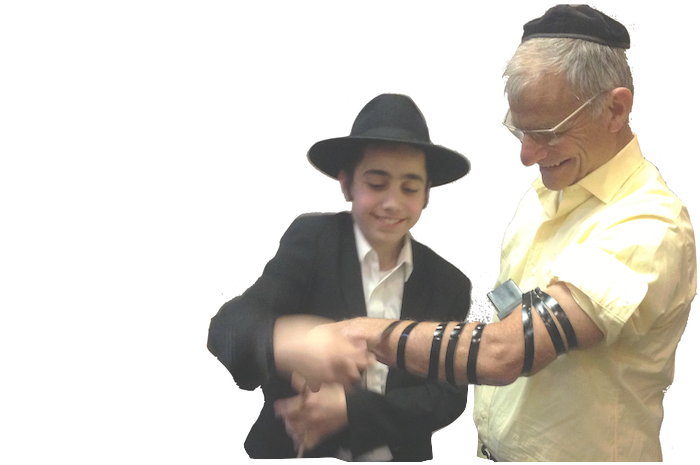
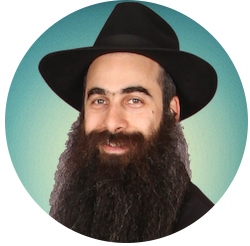
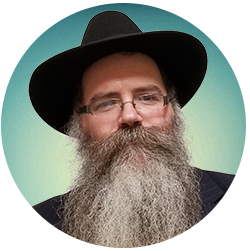
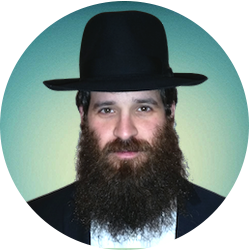
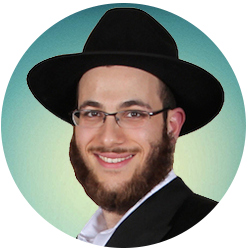
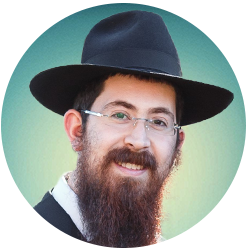
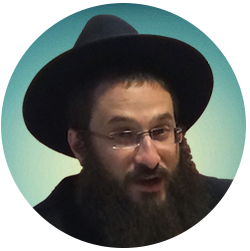
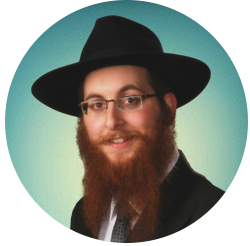


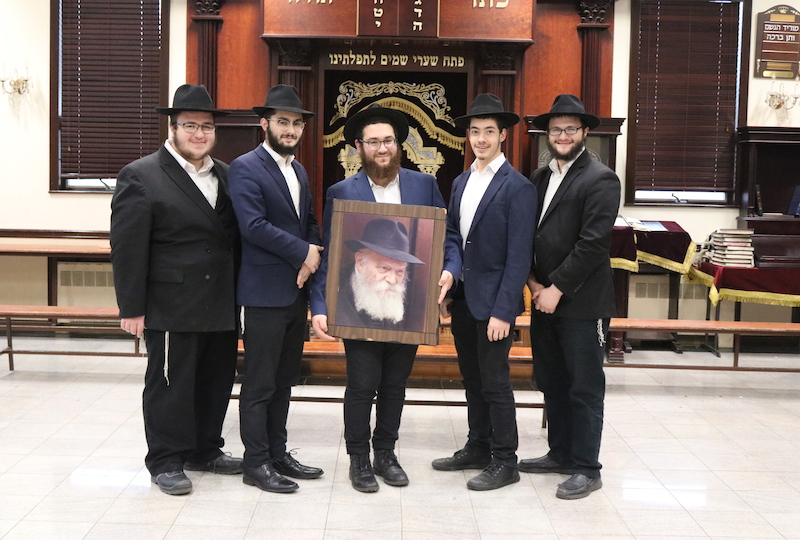
Social Well Being and Achdus
On the one hand,the Inyon of Bitul, which is evident in the Achdus with other Yidden…And on the other hand, together with the Bitul, must be evident the strong sense of self of each Yid in his own right, that each Yid is a ‘Mekabel Hatorah’, each according to his own level…
(Behar-Bechukosai 5771 pg.547-548)
Read more…